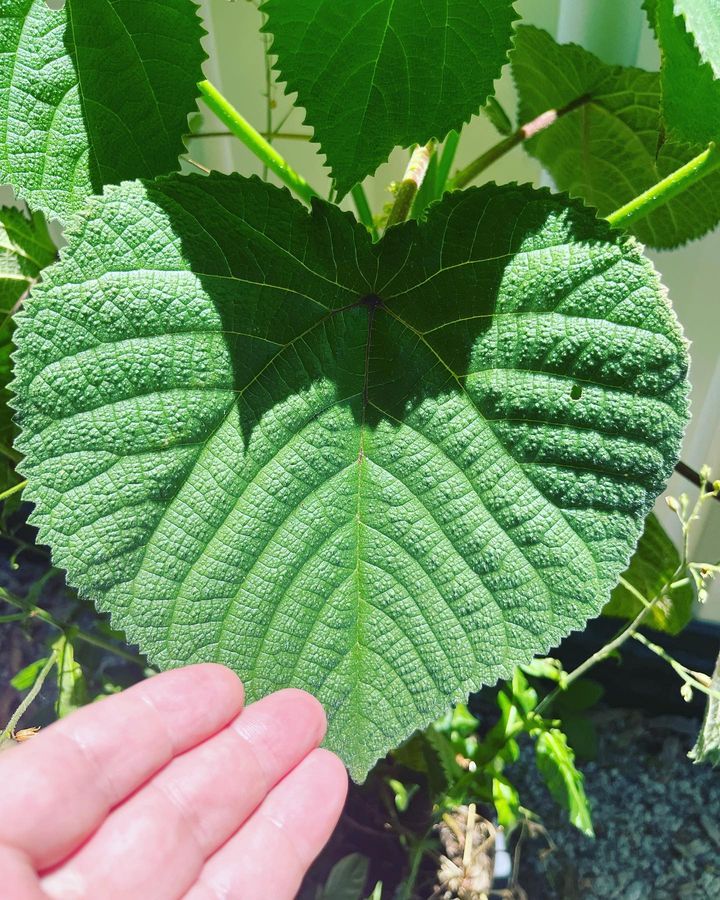Enjoy the beauty of nature from a safe distance because you never know when you might encounter a deadly plant like Devils Toilet Paper.
The burning sensation from the Devils Toile Paper is unlike any other pain. So go through the article to know more and what to do if you ever encounter it.
Table of Contents Show
What Is Devils Toilet Paper Plant?
Famous for the notoriously long-lasting and painful sting, Devils Toilet Paper plant is a tropical rainforest tree from the Urticaceae family.
The Devils Toilet Paper (Dendrocnide moroides) plant is native to Eastern Australia. People are more familiar with its common names, like Gympie Gympie Toilet paper, the Australian Stinging tree, or the Giant Stinging tree.
The characteristic feature of the Gympie Gympie toilet paper plant is its heart-shaped leaves of 0.4 to 0.75 feet long and 0.36 to 0.60 feet wide. It has stingy trichomes on the surface.

These trichomes have toxins that can embed your skin if you ever touch it due to a sharp hollow needle.
Moreover, the point below the hair tip is so delicate and flexible that it breaks off easily to remain inside your skin.
The broken tip can stay on your skin for over two years and give painful sensations.
The Gympie Gympie Toilet Paper plant is named Devils Toilet Paper because soldiers during the war unknowingly used the leaves as toilet paper. The pain left by the leaves was unbearable, thus, the Devils.
However, do not mistake it for Toilet Paper Plant, also known as Blue Spur Flower, as they are entirely different.
Side Effects Of Australian Giant Stinging Tree
Most people who know the Australian Singing Tree try to stay as far as possible and would not even want to enter its space.
So better be friendly with the Gympie Gympie Toilet Paper plant side effects to take precautionary measures as soon as possible.
- A burning sensation from touching, when temperature changes, or when cold water falls on the affected area of the body.
- Lack of sleep due to excessive pain.
- A heavy heart and swollen mouth and tongue create breathing problems.
- Continuous inhalation of hairs present nearby the tree area can cause respiratory complications.
- It can also trigger allergies and lead to severe sneezing, watery eyes and nose.
- A person starts itching and has hives that are unbearable.
- The person coming in contact with the Stinging Tree can have a severe sore throat similar to tonsillitis.
What Do You Do If You Get Stung By Devils Toilet Paper Plant?
Recently researchers have produced remedies that you can use if you ever come across the dangerous Giant Stinging tree.
You can also use a tweezer to remove visible hairs, but that might be time consuming than others.
Next, wash off the stung area with warm water and soap or apply papaya ointment or topical cream like Xylocaine 5%.
Some even swab the area with diluted hydrochloric acid, but these are all temporary cures.
However, you must seek medical attention at the end of the day as the pain might revive after one or two months.
Meanwhile, it can create severe reactions depending upon the person’s sensitiveness. So better not to delay the medical guidance.
From Editorial Team
Stay Away From The Most Deadliest Tree!
Do not go near the old leaves of the Devils Toilet Paper plant, as the hair follicles can still incur the sting.
Wear a full sleeve cloth and cover all the exposed skin with protective gear if you plan camping or trekking in rainforests to avoid mishaps.


